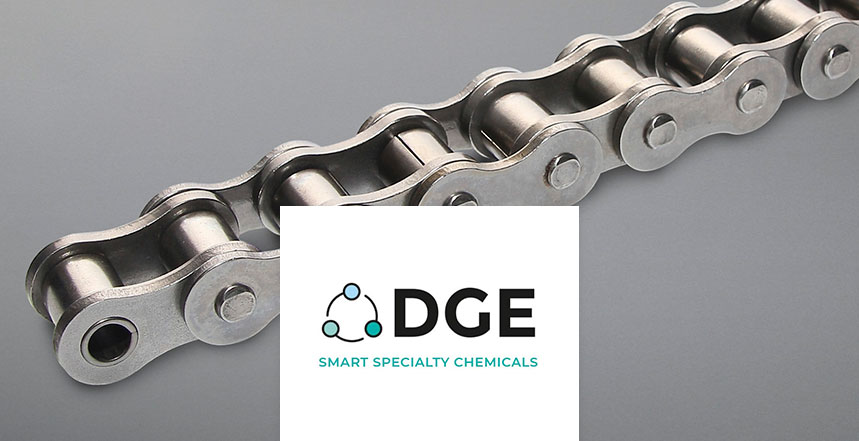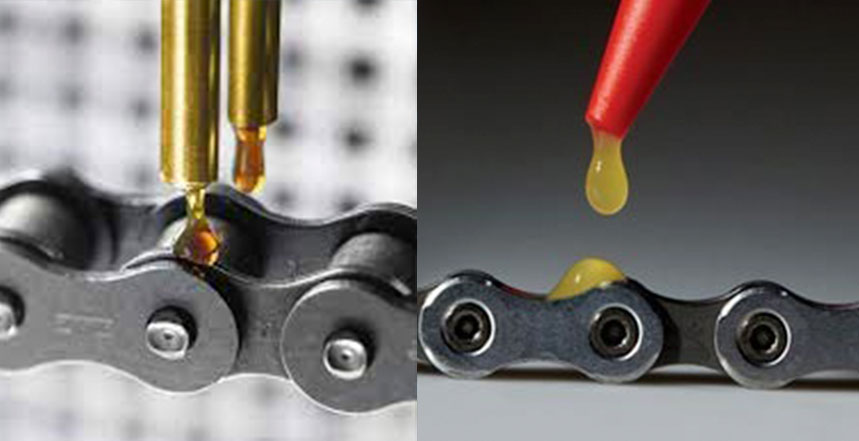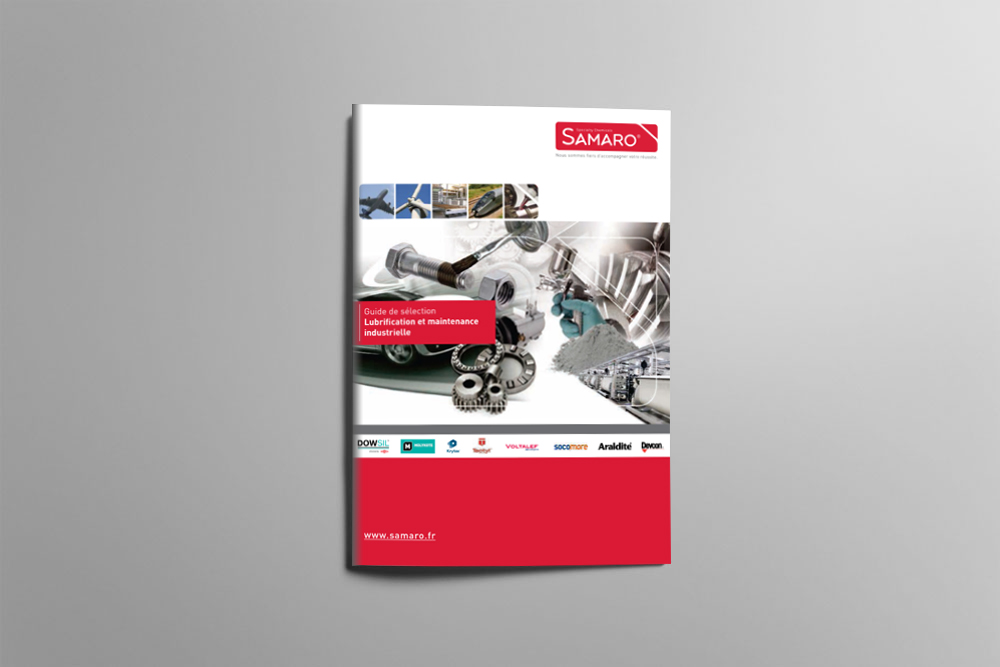How to choose the right chain lubricant?

Why is it important to lubricate a chain?
Chains are used in many industries for power transmission or transportation purposes. A chain is a series of movable plain bearings connected to the teeth of a sprocket, which allows force and motion to be transmitted to a mechanism.
Therefore, proper lubrication is essential not only for maximum service life, but also for optimum operating efficiency.
In most cases, a chain can break either through tension, fatigue or wear:
- In the first case, tensile failure, the chain is overloaded with tension until it reaches plastic deformation and no longer functions properly. It can also happen that the chain elements are torn off.
- In the case of fatigue failure, the chain is repeatedly loaded in tension below the yield strength of the metal. After repeated exposure to load, a series of microscopic cracks can develop in the link plates or side bars, which can lead to catastrophic failure, breaking the chain.
- Finally, in the case of wear failure, material is removed by sliding or a combination of sliding with corrosion or abrasion until the chain no longer functions properly. It can also happen, as with the other failure modes, that the chain breaks.
In many cases, wear between the pin and bush causes the chain to stretch until it does not fit properly on the sprockets or maintain proper spacing between the elements.
This wear evolves through different stages, the first of which is a short period of initial rapid wear (also known as running-in wear), followed by a period of constant slow wear (or lubricated wear).
The final stage is terminal wear, where lubrication may have become ineffective, and the chain fails.
How to choose the right lubricant?
For the reasons mentioned earlier in this article, chain lubrication is necessary to slow the onset of wear between the pins and bushes of the chain joints, as well as to remove any foreign material and wear debris that is generated.
In addition, lubrication can also be used to protect against rust and corrosion, to dissipate heat and to dampen shocks
Selecting the right lubricant for any specific application requires a full understanding of the operational and environmental conditions to which the chain will be subjected.
In particular, a lubricant for this type of application must have a viscosity low enough to penetrate critical internal surfaces, but also a viscosity high enough to maintain an effective film thickness under the operating temperature and pressure conditions. The latter can also be achieved through additives in the lubricant.
The environmental conditions in which the chain will be used can also play a major role in the choice of lubricant, as the presence of dust or other undesirable contaminants may lead to waxy or tacky lubricants being preferred for the application.

What should you consider?
Poor lubrication methods and the use of the wrong lubricant are among the most common sources of chain failure.
More importantly, the correct choice of lubricant is critical to achieving optimum efficiency.
For example, heavy oils and greases are too stiff to penetrate deep enough into the chain to reach the actual contact surfaces of the chain. Applying grease to the outside of the chain will only act more like a sealant, hindering the working process and ultimately leading to more wear. This leads to premature chain failure.
Further relubrication, on the other hand, can also have a negative impact. This is because it will result in the development of thicker and thicker layers of grease on the plates and rollers. With the addition of dust particles, the chain becomes increasingly greasy and encrusted, preventing the lubricant from reaching the small spaces in the joints.
Sources : www.dge-europe.com
More information :
Needs more information on Molykote or Krytox ?
Contact our technical services by phone to +33 426 680 680 or fill our contact form.
This article may interrest you : How do I choose the right bearing lubricant?
You can also download our lubricants selector guide :
